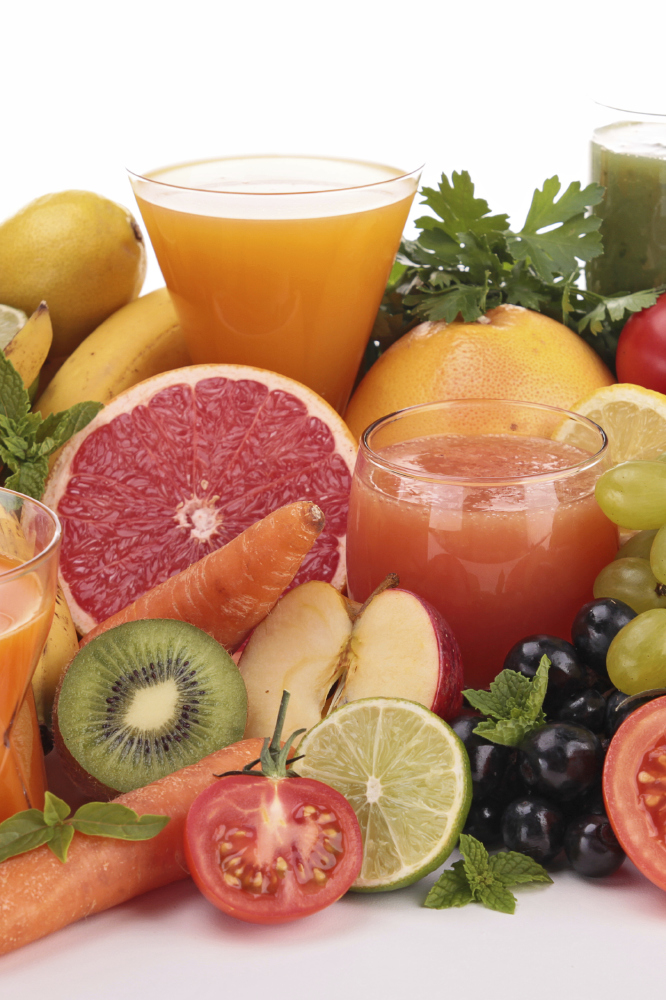
It may be better to eat the fruit rather than drink juice versions
We may be lead to believe there are plenty of benefits to drinking fruit juices, but new research shows that it could be as bad for you as fizzy drinks.
Researchers say that they can put people at increased risk of developing diabetes.
Writing in The Lancet Diabetes and Endocrinology journal, Professor Naveed Sattar says that one glass fruit juice contains more sugar than a piece of fruit. And what’s more, the good things, like fibre, found in fruit are in there in far smaller amounts.
The researchers are calling for fruit juice labels to make it clear that consumers should also drink no more than 150 millilitres a day.
Nutritionist and assistant product manager at health and fitness app, Lifesum, Lovisa Nilsson comments on the research: “Fresh fruit juices contain a variety of vitamins that benefit our health so it is not necessary to cut them out of our diet completely but fruit juice should never be a substitute for natural fruit. Try not to rely on marketing phrases such as ‘100% pure’ or ‘one of your five a day;’ it is always best to check the ingredients for yourself, as often extra sugar and artificial ingredients are added to juices with misleading labels.
“Fresh juices and smoothies can also have a very high sugar content and they lack the fibre found in real fruit and vegetables. The sugars found in whole fruits are contained within the fruit structure but this sugar is released when the fruit is blended to make a smoothie or juice therefore, if consumed regularly, you may damage your teeth and increase the risk of type 2 diabetes and even obesity. If you are on a calorie controlled diet, try diluting the juice with water to reduce the sugar levels.’’
Professor Naveed Sattar and Dr Jason Gill, from the University of Glasgow’s Institute of Cardiovascular and Medical Sciences, are also recommending a change to the current “five-a-day” guidelines. They want the five fruit and vegetable servings to no longer include a portion of fruit juice as an option.
Dr Gill told the Scottish Express: “As a population we are getting fatter and we need to think of ways to reduce the amount of energy and liquid calories that we consume because this can lead to a higher chance of diabetes. Broadly speaking the sugar contents in fruit juices are similar to those found in colas and similar drinks.”
In one scientific trial, drinking half a litre of grape juice per day for three months actually increased insulin resistance and waist circumference in overweight adults.

